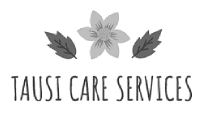Understanding Cultural Diversity in Australia
Australia is a melting pot of cultures, with people from various ethnicities, languages, and backgrounds contributing to its rich tapestry of diversity. According to the Australian Bureau of Statistics, almost half of the population was born overseas or has at least one parent born overseas. This cultural diversity is reflected in the NDIS participant base, with individuals from culturally and linguistically diverse (CALD) backgrounds seeking support through the scheme.
NDIS Provider Registration and Cultural Responsiveness:
As NDIS providers, it’s essential to acknowledge the diverse needs and preferences of clients from different cultural backgrounds. Cultural responsiveness goes beyond mere tolerance; it involves understanding, respecting, and accommodating the unique cultural identities and practices of individuals. Here’s why it’s crucial for NDIS providers to prioritise cultural responsiveness:
Access and Equity: Cultural responsiveness ensures that individuals from CALD backgrounds have equitable access to NDIS services. By acknowledging cultural differences and adapting service delivery accordingly, providers can bridge the access gap and ensure inclusivity for all.
Quality of Care: Culturally responsive services enhance the quality of care and support provided to NDIS participants. Understanding cultural nuances, beliefs, and values allows providers to deliver services that are respectful, relevant, and effective in meeting the diverse needs of clients.
Trust and Engagement: Building trust and rapport with clients is essential for successful outcomes. Cultural responsiveness fosters trust by demonstrating sensitivity to clients’ cultural backgrounds and preferences. When clients feel understood and respected, they are more likely to engage actively in their support plans.
Compliance and Standards: NDIS provider registration groups emphasise the importance of cultural competence and responsiveness in service provision. Providers are expected to adhere to standards that promote diversity, inclusion, and culturally safe practices to maintain their registration status.
Strategies for Delivering Culturally Responsive Services
To effectively meet the needs of culturally diverse NDIS participants, providers can implement the following strategies:
Cultural Competency Training: Invest in training and development opportunities to enhance staff’s cultural competency and awareness. Training should cover topics such as cultural sensitivity, communication strategies, and understanding cultural differences.
Diverse Workforce: Recruit staff from diverse cultural backgrounds to better reflect the communities you serve. A diverse workforce brings unique perspectives and insights, facilitating more culturally responsive service delivery.
Language Support: Offer language assistance services, such as interpreters or translated materials, to overcome language barriers for CALD clients. Clear communication is essential for ensuring clients fully understand their NDIS plans and rights.
Respect for Cultural Practices: Respect clients’ cultural practices, traditions, and beliefs when designing and implementing support plans. Allow flexibility in service delivery to accommodate cultural preferences and customs.
Community Engagement: Engage with CALD communities and community organisations to better understand their needs and preferences. Building partnerships and collaborating with cultural leaders can enhance your ability to deliver culturally responsive service.
Benefits of culturally responsive NDIS services
Culturally responsive NDIS services offer a range of benefits that positively impact both service providers and participants. Here are some key advantages:
Improved Access and Engagement: Culturally responsive services break down barriers to access by accommodating the diverse needs and preferences of participants from different cultural backgrounds. By recognising and respecting cultural differences, providers create an inclusive environment where all participants feel valued and engaged in their support plans.
Enhanced Quality of Care: Cultural responsiveness ensures that NDIS services are tailored to meet the specific needs and preferences of participants from culturally and linguistically diverse (CALD) backgrounds. Providers who understand and respect cultural nuances can deliver more effective and meaningful support, leading to improved outcomes and satisfaction for participants.
Building Trust and Rapport: When participants feel understood and respected by their service providers, it fosters trust and rapport. Culturally responsive services demonstrate a commitment to cultural sensitivity and understanding, which can strengthen the relationship between providers and participants. This trust is essential for effective collaboration and achieving positive outcomes.
Increased Satisfaction and Engagement: Participants are more likely to be satisfied with their NDIS experience when they receive culturally responsive services. Feeling heard, respected, and valued enhances participants’ overall satisfaction and encourages active engagement in their support plans. Culturally responsive services empower participants to take ownership of their care and make informed decisions about their goals and preferences.
Reduced Disparities in Health and Wellbeing: Culturally responsive services play a crucial role in addressing disparities in health and wellbeing experienced by CALD communities. By customising services to meet the unique needs of participants, providers can help reduce barriers to accessing healthcare and support services, ultimately promoting better health outcomes and wellbeing for all participants.
Compliance with NDIS Standards: NDIS providers are required to adhere to standards that promote diversity, inclusion, and cultural safety. By delivering culturally responsive services, providers ensure compliance with NDIS requirements and maintain their registration status. This commitment to cultural competence demonstrates professionalism and dedication to meeting the needs of all participants.
In summary, culturally responsive NDIS services offer numerous benefits, including improved access and engagement, enhanced quality of care, building trust and rapport, increased participant satisfaction and engagement, reduced disparities in health and wellbeing, and compliance with NDIS standards. By recognising and responding to the diverse cultural backgrounds of participants, providers can create an inclusive and supportive environment where all participants can thrive.



























